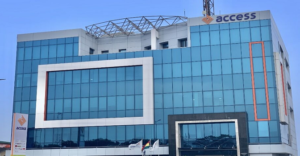The Director General of the Manufacturers Association of Nigeria (MAN), Segun Ajayi-Kadir, has said that between 56 per cent and 60 per cent of the association’s members in the North-East Nigeria have been shut down by insecurity in the region.
He said this during an interview on Channels Television, Sunrise Daily, on Saturday, where he complained about the challenge of insecurity to businesses and how it has resulted in additional cost to firms across the country.
He said, “Insecurity is a major challenge. I can tell you that we lost about 56% to 60% of our members in the North-East to insecurity.
They just stopped production. And so when you want to say how it impacts your business, you now look at the cost that you incur to be secured. This was something that was not existent many years ago.”
Furthermore, the Director-General of MAN lamented the increased cost contributed by private security to the overall production costs, stating that some companies or members of MAN pay more on security than taxes.
His statement was in response to the security concerns in Okomu Oil Palm Plc where the attacks on the company and its workers in the past few days led to the loss of lives and properties.
He noted that insecurity is a disincentive to manufacturing and government’s efforts to attract investment to the country. He called on governments at all levels to step up.
Speaking on other issues affecting the manufacturing sector, Ajayi-Kadir touched on the electricity tariff hike and central bank’s monetary policy tightening, stating that MAN is not opposed to increase in electricity tariff considering the rise in oil prices and others.
He stated that there has to be engagement with stakeholders as stipulated by law and value for money for the consumers.
In his words, “The electricity tariff hike is extremely prohibitive for our members. It is 250% increase. Where are you going to pass it? Power is somewhere between 25% to 40% of our cost structure depending on how power intensive your production process is and this is coming at time that you know what is happening at the interest rates, exchange rate, inflation, insecurity, multiple taxes and levies. It is too much and it need not be this way.”
The North-East region has seen the deadliest spate of terrorism in Nigeria’s history in recent times beginning from the Boko-
Haram insurgency in 2009. However, this insecurity has gradually spread all over the country, especially the North-West and North-Central, adversely affecting food production and other businesses..







